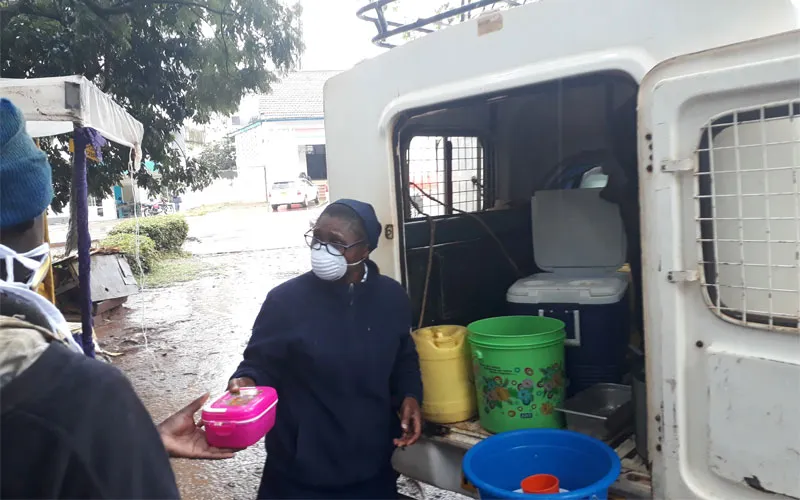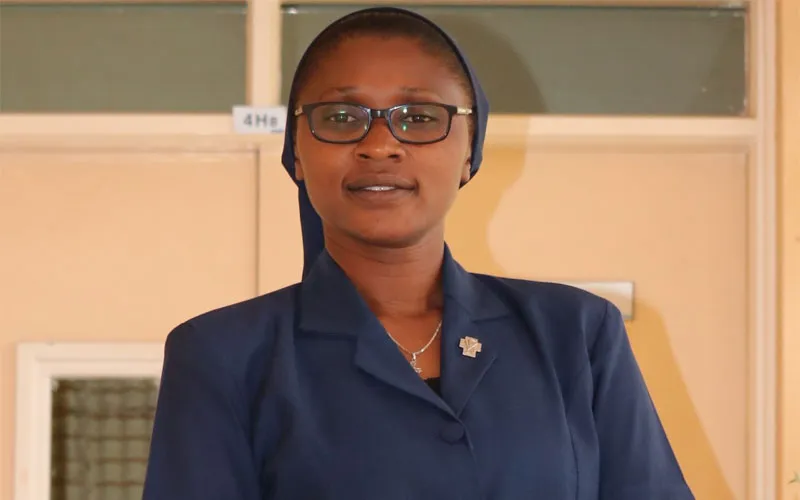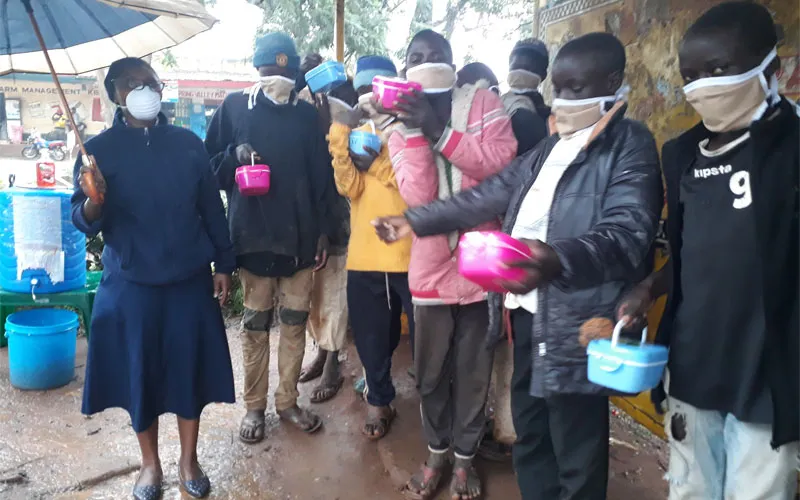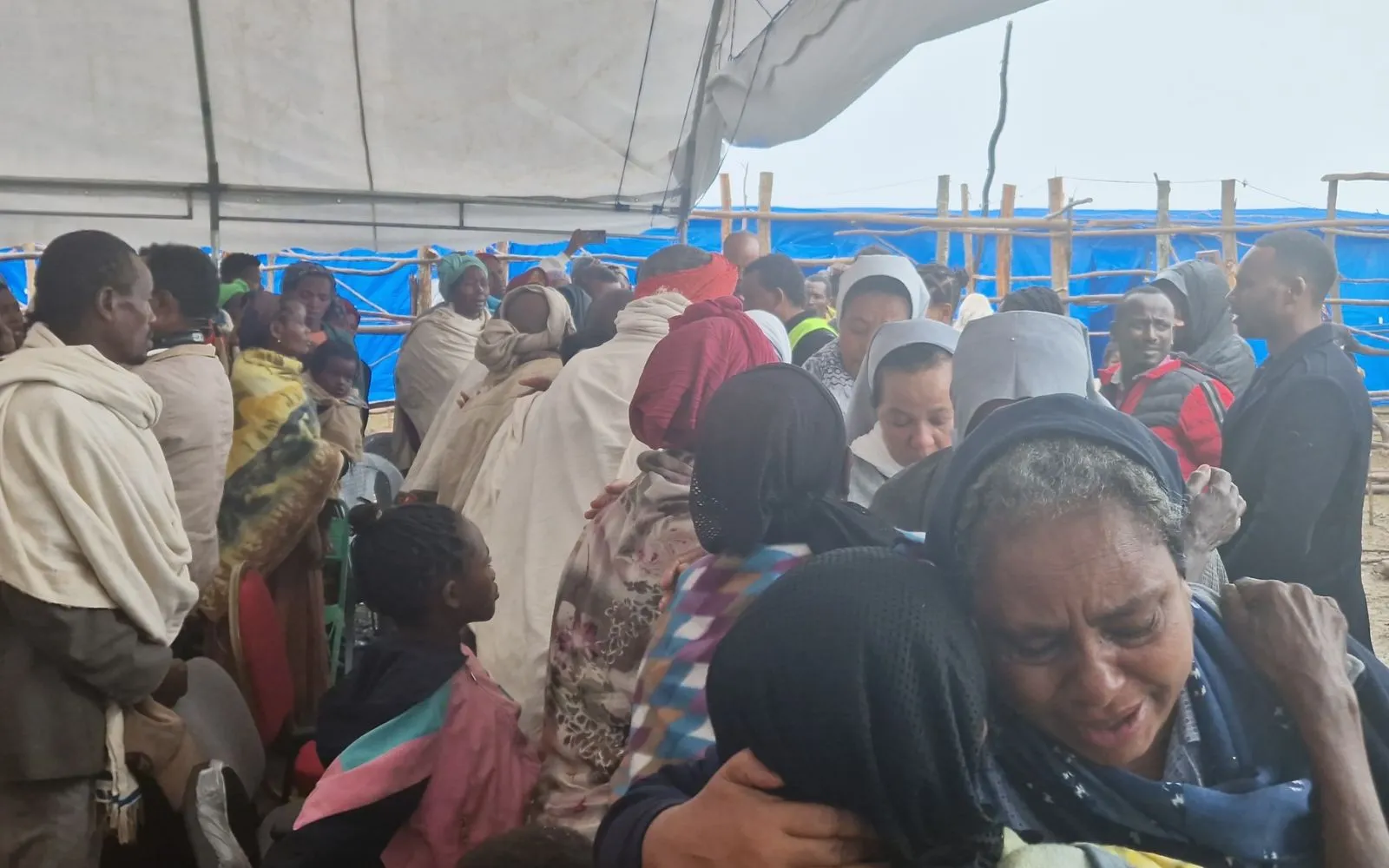According to Sr. Winnie, there is another scenario. A number of boys on the streets in Kitale are those from poor backgrounds who underwent traditional initiation and on coming back, did not find houses of their own put up for them and so, they chose street life over having to stay with their parents under one roof.
“Culture over here dictates that after circumcision, a boy becomes a man and is therefore not allowed to continue sleeping under one roof with their parents. The belief is so deep that those who come out of the initiation and find no houses of their own decide to run away,” she explains.

It is a major challenge that USC seeks to fill by constructing houses for the street boys as a way of reintegration in the families. Those who show the desire to go back to school will also have houses of their own so that they do not sleep on the streets when they go to school.
The COVID-19 turbulence has not stopped Sr. Winnie from reaching out to the boys who are still living on the streets as well as conducting home visits for those who have been reunited with their families.
(Story continues below)
Mondays, Wednesdays and Fridays are days when staff at USC take food to waiting street children at the Kitale showground where the boys like hanging out. Tuesdays and Thursdays are reserved for conducting home visits to check on the progress of the boys in their homes.
“We encourage the boys to carry food containers where we serve them food on three weekdays. After eating the meal together, they take the rest away in their food containers,” Sr. Winnie says.

For home visits, USC brings foodstuffs to support poor families where the street boys come from. In the past, the boys have been given new beddings to use at home.
“When we started, we used to have the boys come to USC drop-in centre where they had a shower, put on clean clothes before they shared a meal and engaged in interactive activities. Then corona came. We hope that we can go back to normal after the disease is done. But meanwhile, we’ll keep doing little things so that we don’t lose touch with the boys completely,” she says.
Sr. Winnie conceived the idea of USC early last year soon after she graduated with a Bachelor's degree in Social Communication from one of the Constituent Colleges of CUEA, Tangaza University College (TUC), which is jointly owned by 22 Religious Orders.
She went on to conduct a feasibility study in Kitale to identify the gap she could fill among street children, given that many organizations were already engaged in some form of projects around street children in the Western Kenya town.
“I conducted a lot of research, engaged the county government and other stakeholders and concluded that there was this one group on the streets that no one was interested in. These were adolescent youth between the age of 15 and 18,” says Sr. Winnie.
She adds, “This was the most vulnerable group on the streets. No one wanted anything to do with them. Even non-governmental organizations preferred younger street children who are easier to talk into leaving the streets. But the older ones who were probably in the adolescent stage were dismissed as too deviant. I decided that this is the group I wanted to work with.”

What inspired Sr. Winnie to work with the boys, on top of the Charisma of her religious congregation that moves her to engage in charitable activities, she says, is her desire to impact lives of youth.
“I love to do things for young people especially those who no one listens to in society. It can only get worse on the streets. But here, I see vulnerable boys that have a great potential of becoming responsible men with their own homes,” she says.
Starting off in January this year with a cook, a laundry person and four social workers at the newly constructed drop-in centre, Sr. Winnie had a budget for not more than 25 street boys.
“I knew only boys would come because there are no girls on the streets in Kitale. It is something I plan to look into, just to find out why,” she says, adding that on the actual launch of the project on January 28, more than 40 boys showed up.
It was the day that the staff at USC started taking records of the street boys to establish the consistent ones. From the 46 that attended the launch, 33 had remained consistent at the centre. From these, a 16-year-old has already been enrolled in Secondary School, Form 2 while a 15-year-old has been enrolled back in Primary school. 10 other boys were about to join different Technical and Vocational Education Centres before the country announced closure of learning institutions.
All the COVID-19 inconveniences notwithstanding, the Daughters of Charity nun foresees a society that will respond to the plight of the street children by the time the disease is contained.

“This disease will surely end and by the time it is gone, we shall have families that will have accepted their children who have for long suffered on the streets. Then, the integration process will be easier,” Sr. Winnie says.
She adds in reference to the 7 p.m. – 5 a.m. curfew, “When the curfew was announced, the families understood the danger on the streets and so, most of them didn’t require a lot of convincing to take the children back. But at the moment, we continue to monitor the boys in the families during the family visits.”
Agnes Aineah is a Kenyan journalist with a background in digital and newspaper reporting. She holds a Master of Arts in Digital Journalism from the Aga Khan University, Graduate School of Media and Communications and a Bachelor's Degree in Linguistics, Media and Communications from Kenya's Moi University. Agnes currently serves as a journalist for ACI Africa.














